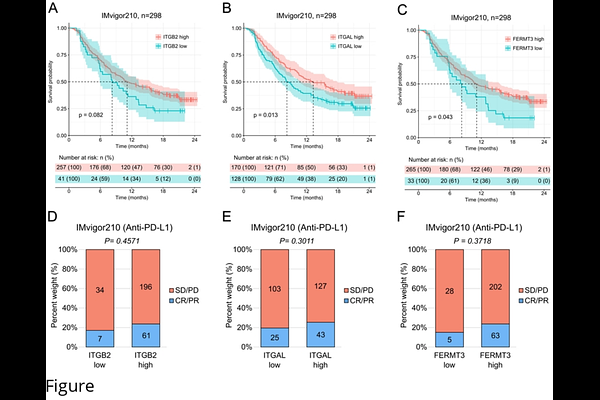β2-integrins as biomarkers in urothelial cancer

β2-integrins as biomarkers in urothelial cancer
Fagerholm, S. C.; Asens, M. L.; Khan, I.
Abstract{beta}2-integrins are a family of adhesion proteins expressed in immune cells that play multiple roles in anti-tumor immunity. {beta}2-integrins regulate tumor infiltration of anti-tumorigenic immune cells such as cytotoxic CD8+ T cells and NK cells. However, they also regulate the activity of myeloid cells, such as macrophages, which can have both anti- and pro-tumorigenic properties. The role of {beta}2-integrins in urothelial cancer remains poorly understood. Here, we have investigated the role of different {beta}2-integrins, and their cytoplasmic regulators, in urothelial cancer, by utilizing RNA expression data. We found that ITGAL (encoding for CD11a) and FERMT3 (encoding for the integrin regulator kindlin-3) have a positive correlation with patient survival. EcoTyper analysis revealed increased infiltration of CD8+ T cells and NK cells in ITGAL high samples, but ITGAL or FERMT3 expression did not correlate with response to immunotherapy. In contrast, ITGAM and ITGAX (which encode for myeloid markers CD11b and CD11c) and FLNA (encoding for the integrin regulator filamin A) correlated with poor survival and reduced responsiveness to immunotherapy and critically regulate the tumor myeloid immune landscape (M1/M2 macrophages, cDC1 dendritic cells). Therefore, different {beta}2-integrins may be used as biomarkers to differentiate urothelial cancer patients with different immune landscapes, responding differently to therapy.